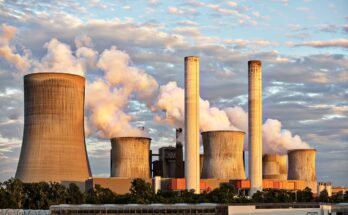The environment is the foundation upon which all life on Earth depends. It encompasses the air we breathe, the water we drink, the food we eat, the land that sustains us, and the biodiversity that supports the delicate balance of ecosystems. However, the environment is not just an abstract concept; it is our home, and its health is directly tied to our well-being. Understanding the importance of the environment and the critical need to protect it is paramount in ensuring the survival and prosperity of future generations.
1. Sustaining Life
Every living organism, from the smallest microbe to the largest mammal, relies on the environment to survive. Plants absorb sunlight, water, and carbon dioxide from the air to produce oxygen and food, forming the base of the food chain. Animals, including humans, depend on plants and other animals for sustenance. Without a healthy environment, these vital resources would be depleted, making it impossible for life to thrive.
For example, forests act as the lungs of the planet, producing oxygen and absorbing carbon dioxide. Wetlands filter pollutants and provide habitat for countless species. Oceans regulate the climate, support biodiversity, and provide food to millions of people. All these elements of the environment work together to maintain the intricate web of life, and any disruption to one component can have far-reaching effects on others.
2. Climate Regulation
The environment plays a crucial role in regulating the Earth’s climate. Oceans, forests, and other ecosystems help absorb greenhouse gases like carbon dioxide, which would otherwise contribute to global warming. When these systems are disrupted, for instance, through deforestation or pollution, the ability of the Earth to regulate its climate diminishes, resulting in temperature fluctuations, rising sea levels, and extreme weather events.
Climate change, driven by human activities such as the burning of fossil fuels and deforestation, is one of the most urgent environmental issues today. If left unaddressed, it will continue to have devastating effects on ecosystems, agriculture, water resources, and human health. It is therefore essential for governments, industries, and individuals to work together to reduce carbon emissions and transition to sustainable energy practices to mitigate the impacts of climate change.
3. Biodiversity and Ecosystem Services
Biodiversity is the variety of life forms present in the environment, and it is an integral part of ecosystem health. Ecosystems that are rich in biodiversity are more resilient to changes and can better provide essential services such as pollination, water purification, and soil fertility.
Unfortunately, human activities have caused an alarming decline in biodiversity. Habitat destruction, overexploitation, pollution, and climate change are pushing species to the brink of extinction at an unprecedented rate. The loss of biodiversity not only harms individual species but also undermines the ability of ecosystems to provide the services that humans rely on for survival.
Protecting biodiversity is not a luxury but a necessity. By preserving habitats, reducing pollution, and adopting sustainable practices, we can safeguard ecosystems that provide clean air, fresh water, and fertile soil, all of which are vital for human life.
4. Human Health
The health of the environment is closely linked to human health. Pollution, poor air quality, contaminated water, and exposure to toxic chemicals can lead to a range of diseases, including respiratory disorders, heart disease, and cancer. Climate change can exacerbate these health risks by increasing the frequency of heatwaves, floods, and disease outbreaks.
Conversely, a clean and healthy environment promotes well-being. Access to clean water and air, nutritious food, and green spaces has been shown to improve physical and mental health. Moreover, sustainable practices, such as growing organic food and reducing waste, can help create healthier communities and foster a more balanced relationship between humans and the planet.
5. Economic Benefits
A healthy environment is not only essential for life and health but also for the economy. Ecosystem services such as agriculture, fisheries, and tourism generate billions of dollars globally. The loss of biodiversity, water resources, and fertile land can lead to economic instability, food insecurity, and increased poverty.
Investing in environmental sustainability also creates new opportunities for innovation and green jobs. Renewable energy, sustainable agriculture, and waste management are just a few sectors that contribute to economic growth while minimizing environmental damage. By shifting toward sustainable practices, we can ensure long-term economic prosperity while protecting the planet for future generations.
6. Ethical Responsibility
Finally, protecting the environment is an ethical responsibility that extends beyond our own lifetime. We have a duty to future generations to leave them a world that is capable of sustaining life. This involves not only reducing our own ecological footprint but also advocating for policies that protect natural resources and promote environmental justice.
In many parts of the world, vulnerable communities are disproportionately affected by environmental degradation. Climate change, pollution, and the depletion of natural resources have a greater impact on the poor and marginalized. As stewards of the Earth, we must work to ensure that the benefits of a healthy environment are shared equitably across all societies.
Conclusion
The environment is not a resource to be exploited, but a delicate system that requires care, respect, and protection. The importance of the environment cannot be overstated; it is the foundation of life, health, and prosperity. As we confront the challenges of climate change, biodiversity loss, and environmental degradation, it is crucial that we recognize the interconnectedness of all living things and take collective action to preserve the Earth for future generations. The time to act is now, for the health of the environment is the health of humanity.
The Importance of the Environment: A Call for Collective Responsibility



